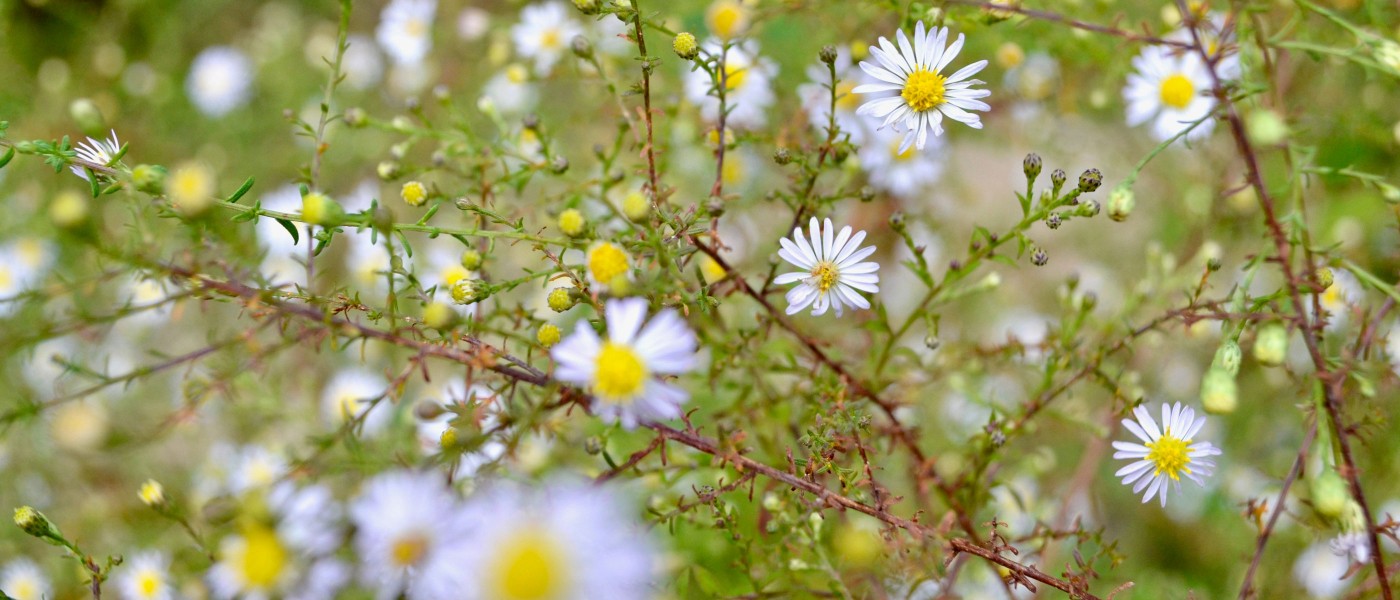Topics
Special Series
-
An Adventure into Harriman State Park
BBG and the Greenbelt Native Plant Center often partner for joint scouting and seed collection trips to natural areas within the metropolitan region of New York City. Recently we headed to Harriman State Park on an expedition to find Carex appalachica (Appalachian sedge). Read about our hunt for this common but elusive species.
By Uli Lorimer -
The Centennial Annual Border Display
In honor of BBG’s centennial, Cayleb Long developed displays for the Annual Border inspired by plants and design styles popular at the time of BBG’s inception in 1910.
By Rebecca Bullene -
Alexander Calder Sculpture Comes to BBG
Today Calder's Le Guichet was installed at BBG, on loan from Lincoln Center.
By Elizabeth Peters -
Caring for City Street Trees
It’s not easy being a street tree in an urban environment. In New York City alone, 6,000 to 7,000 street trees die each year. But it doesn’t have to be this way. By giving street trees a little maintenance and care, you can help ensure that the 20,000 new street trees planted this year by MillionTreesNYC, the city’s forestry initiative, survive.
By Rebecca Bullene -
Rose Highlights of BBG
With more than 5,000 rosebushes of nearly 1,400 different species and varieties, the Cranford Rose Garden is home to one of largest and most diverse rose collections in the country. Below are five not-to-be missed highlights to look for on your visit. Chosen for their scent, color, and style, these are some of the best roses at BBG.
By Rebecca Bullene -
Resplendent Rhubarb
One of first vegetables of the season to produce a harvestable crop, rhubarb has a long and colorful history. We enjoy the tart and tasty species of rhubarb today in dishes such as Broiled Salmon with Garlic and Ginger Rhubarb Sauce (recipe included).
By Ann Lovejoy -
Urban Beekeeping
Urban beekeeping is on the rise in the U.S., powered by such trends as the local food movement and the spread of inner-city community gardens.
By Jent LaPalm -
Tulip Time
The tulips planted in the Annual Bed have begun to open and create a gorgeous and exotic color display in the Lily Pool Terrace.
By Rebecca Bullene -
A Hardy Succulent Garden
Have you ever toured a garden in the Southwest and wondered how you could possibly re-create some of its succulent glory in your colder, snowier climate? Well, there’s no need to fantasize—just pick or create a nice, sunny, fast-draining spot in your yard and plant some hardy succulents species.
By Panayoti Kelaidis -
March is Magnolia Month!
It’s a beautiful day in the Judith D. Zuk Magnolia Plaza at BBG! Many of the trees are in bloom creating a space that smells as good as it looks.


